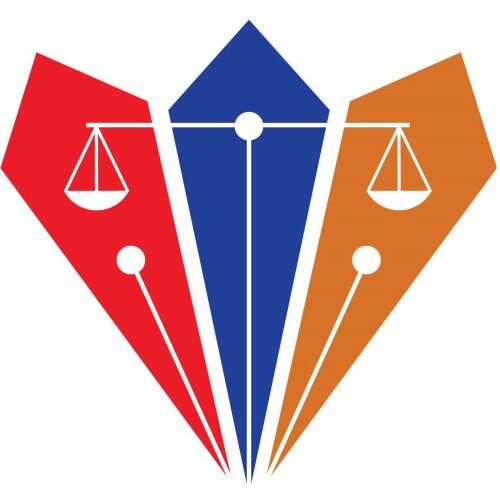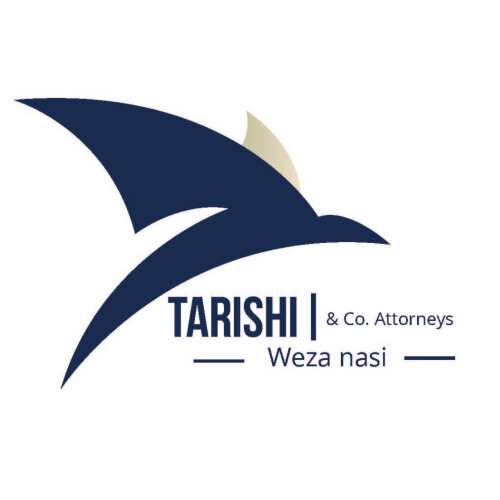Best International Trade Law Lawyers in Zanzibar
Share your needs with us, get contacted by law firms.
Free. Takes 2 min.
List of the best lawyers in Zanzibar, Tanzania
About International Trade Law in Zanzibar, Tanzania
International Trade Law in Zanzibar, Tanzania, encompasses regulations, treaties, agreements, and practices that govern trade between parties across international borders. It involves various aspects spanning from import-export procedures to tariffs, trade barriers, and global trade relationships. In Tanzania, including Zanzibar, international trade is influenced by both local laws and international agreements that Tanzania is a party to. Zanzibar operates under a semi-autonomous government within Tanzania, which allows it some legislative powers, including those related to trade.
Why You May Need a Lawyer
Seeking legal advice in International Trade Law may become necessary for several reasons:
- Compliance Issues: Understanding and complying with local and international trade regulations can be complex.
- Customs Disputes: Issues with customs duties, tariffs, and import-export licensing may require legal intervention.
- Contract Negotiations: Drafting and negotiating international trade agreements necessitates legal expertise to safeguard interests.
- Intellectual Property Protection: Companies may need to secure and enforce IP rights across borders.
- Trade Financing: Legal help can be crucial in facilitating and securing financing for trade activities.
- Dispute Resolution: Resolving trade disputes or engaging in arbitration/legal proceedings demands skilled legal professionals.
Local Laws Overview
Several key aspects of local laws in Zanzibar are pertinent to International Trade Law:
- Zanzibar Investment Promotion Authority (ZIPA): Governs investment and trade promotions, offering permits and licenses for businesses.
- Import and Export Regulations: Governed by both Zanzibar and Tanzanian authorities, these regulations detail the procedural requirements for trade.
- Customs and Tariffs: Managed by the Zanzibar Revenue Board (ZRB), these laws determine the duties applicable to imported goods.
- Local Content Laws: May affect aspects of international trade by requiring certain levels of local participation or resources.
- Treaties and Agreements: Tanzania’s participation in regional (e.g., EAC) and international trade agreements can impact trade laws in Zanzibar.
Frequently Asked Questions
What is the role of the Zanzibar Investment Promotion Authority (ZIPA) in trade?
ZIPA facilitates investments in Zanzibar, provides regulatory guidance, and grants permits for foreign businesses aiming to trade or invest in the region.
How are customs duties computed in Zanzibar?
Custom duties in Zanzibar are calculated based on the value of goods, with reference to international valuations. The Zanzibar Revenue Board enforces these duties.
Are there any export restrictions in Zanzibar?
There are certain goods, such as indigenous plant species and historical artifacts, whose export is restricted or controlled. It’s essential to consult with customs for current regulations.
What regional trade agreements impact Zanzibar?
Tanzania, including Zanzibar, is part of the East African Community (EAC), Southern African Development Community (SADC), and the African Continental Free Trade Area (AfCFTA), all of which impact trade laws and duties.
Can a foreign company own property in Zanzibar?
While foreign companies can lease property or land for trade purposes, ownership often requires navigating complex investment and land laws, with potential need for local partnerships.
What is the standard process for resolving trade disputes in Zanzibar?
Trade disputes are generally handled through arbitration or formal legal proceedings. That may involve Zanzibar’s legal system or international arbitration, depending on agreement terms.
What are the key regulatory bodies overseeing trade in Zanzibar?
The key regulatory bodies include the Zanzibar Revenue Board (ZRB) for customs, and the Zanzibar Bureau of Standards for quality control of goods.
Do I need local partners to start trading in Zanzibar?
While not always mandatory, having local partnerships can facilitate smoother navigation of regulatory environments and benefit from local market insights and networks.
How do taxes on international trade operate in Zanzibar?
Taxes are imposed on goods and services, value-added tax (VAT) on sales, and corporate tax on profits, aligned with Zanzibar and mainland Tanzania tax laws.
How can I protect my intellectual property in Zanzibar?
Legal registration with the Zanzibar Business and Property Registration Agency (BPRA) is vital to protecting intellectual property and will often require compliance with both local and international standards.
Additional Resources
Consider the following resources for more information:
- Zanzibar Investment Promotion Authority (ZIPA): Guidance on investment opportunities and regulatory requirements.
- Zanzibar Revenue Board (ZRB): Information on customs, tariffs, and tax-related inquiries.
- East African Community Secretariat: Resources on regional trade agreements and cooperative trade efforts.
- Zanzibar Bureau of Standards: Guidelines for product standards and regulations in international trade.
Next Steps
If you seek legal assistance in International Trade Law in Zanzibar, consider the following steps:
- Consultation: Schedule a consultation with a specialized lawyer experienced in international trade law in Zanzibar.
- Research: Conduct thorough research or consult industry professionals to gain insights into your specific trade interests.
- Local Partnerships: Foster partnerships or collaborations with local businesses or advisors familiar with Zanzibar’s trade landscape.
- Engage with Authorities: Talk directly to bodies like ZIPA and ZRB for specific guidance and procedural assistance.
Taking these steps will help you effectively navigate the complexities of international trade law in Zanzibar and leverage opportunities available in this dynamic environment.
Lawzana helps you find the best lawyers and law firms in Zanzibar through a curated and pre-screened list of qualified legal professionals. Our platform offers rankings and detailed profiles of attorneys and law firms, allowing you to compare based on practice areas, including International Trade Law, experience, and client feedback.
Each profile includes a description of the firm's areas of practice, client reviews, team members and partners, year of establishment, spoken languages, office locations, contact information, social media presence, and any published articles or resources. Most firms on our platform speak English and are experienced in both local and international legal matters.
Get a quote from top-rated law firms in Zanzibar, Tanzania — quickly, securely, and without unnecessary hassle.
Disclaimer:
The information provided on this page is for general informational purposes only and does not constitute legal advice. While we strive to ensure the accuracy and relevance of the content, legal information may change over time, and interpretations of the law can vary. You should always consult with a qualified legal professional for advice specific to your situation.
We disclaim all liability for actions taken or not taken based on the content of this page. If you believe any information is incorrect or outdated, please contact us, and we will review and update it where appropriate.









